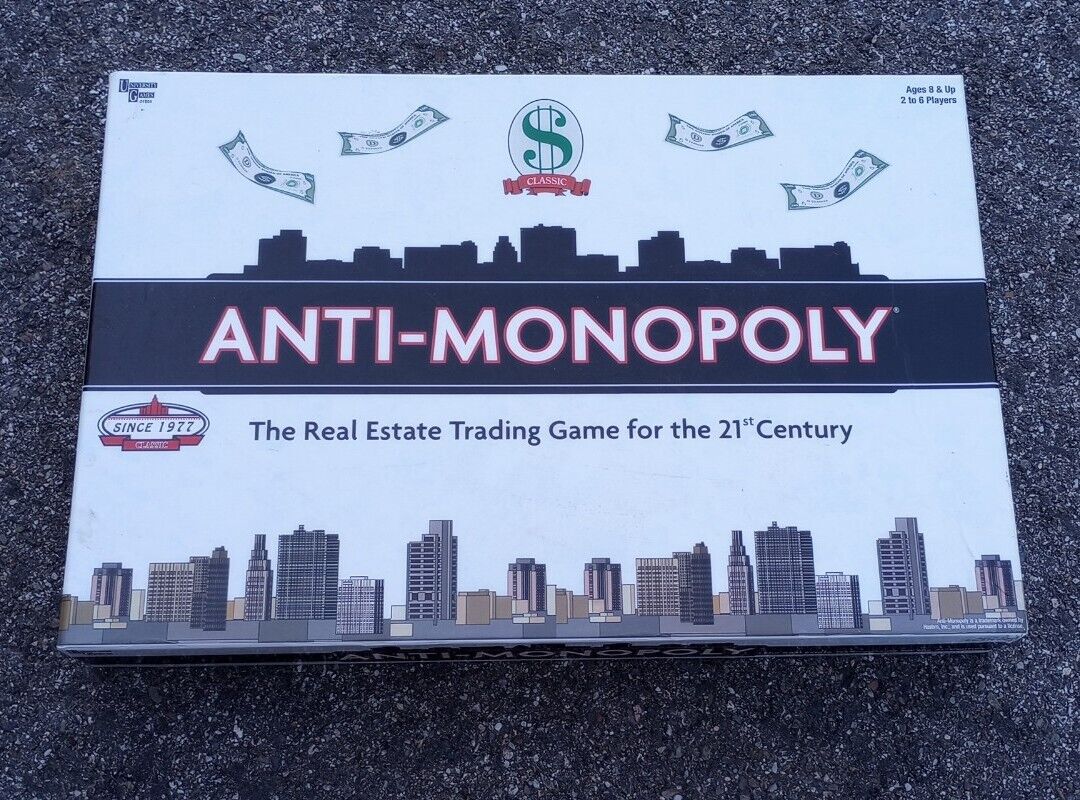Anti-Monopoly
Anti-Monopoly
Anti-Monopoly is a board game created by Ralph Anspach, a San Francisco State University professor, in 1973. The game was a response to Monopoly, which was created in 1935 by Charles Darrow and has since become one of the most popular board games in the world. The idea of an anti-monopoly board game dates back to 1903 when Lizzie Magie created The Landlord’s Game, which later inspired Monopoly.
Why is Anti-Monopoly Popular?
Anti-Monopoly is significant because it offers a different perspective on the concept of monopolies, which is a relevant topic in today’s society. The game is popular among those who are interested in economics, politics, and social justice. It is also popular among those who enjoy board games and are looking for a unique and challenging experience.
Game Components of Anti-Monopoly
How To Setup Anti-Monopoly
To set up Anti-Monopoly, players first decide whether they will play as free market competitors or ruthless monopolists. Each player chooses their role at the beginning of the game, and the board is set up to reflect a monopolized state, similar to the end result of a traditional Monopoly game. The game includes properties that are individual businesses under single ownership, categorized as oligopolies, trusts, and monopolies. Players distribute the necessary cards, money, and other components according to the chosen roles.
Gameplay Mechanics and Game Objective
Player Experience
Anti-Monopoly offers a unique blend of strategy and economic insight, making it a fascinating twist on the classic real estate game. Players appreciate the balanced gameplay and the new level of strategy introduced by the distinct rules for competitors and monopolists. However, some players find the game lengthy and tedious, with games sometimes exceeding two hours without a clear winner.
Pros
Cons
Personal Thoughts on Anti-Monopoly
Anti-Monopoly is ideal for those who enjoy economic strategy and are looking for a game that challenges the traditional Monopoly dynamic. It is particularly suited for players interested in understanding the nuances of free market competition versus monopolistic practices. However, if you prefer shorter, more straightforward games, you might find Anti-Monopoly less appealing. For families and groups looking for a game that combines fun with educational value, Anti-Monopoly can be a great addition to their game collection.
We are supported by our audience. When you purchase through links on our site, we may earn an affiliate commission, at no extra cost for you. Learn more.

